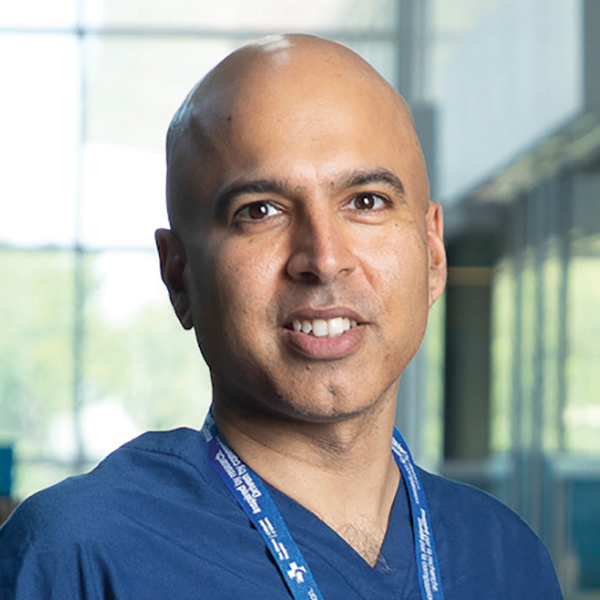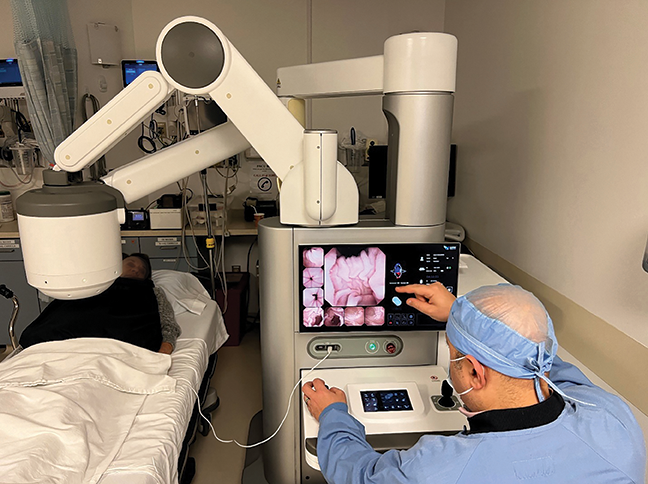The provision of healthcare services has traditionally been focused on optimizing patient outcomes and improving healthcare costs while streamlining care delivery. The impact of these well-intentioned practices, however, extends beyond the individual patient and practitioner and has implications for the population and planet.
In recent years, there has been a noticeable change in the climate, with worsening storms, droughts, wildfires, heat domes, derechos, and more. For many, it has created a sense that we urgently need a change from “business as usual.” That sense of urgency was reflected in the most recent Intergovernmental Panel on Climate Change (IPCC) report, which sounded a “code red” for the planet.1 Ongoing events around the world reaffirm this declaration with respect to climate change.
Climate change is a product of human activity, and we have become increasingly familiar with the concept of the carbon footprint—the total amount of greenhouse gases that are generated by the actions of an individual or group. If surgery and the industry of healthcare worldwide were considered a country, it would rank fifth in terms of the size of its carbon footprint. The US has the greatest emissions per capita with respect to the health sector.2
Within healthcare delivery, perioperative services have an outsized carbon footprint, from the production of disposable and single-use surgical devices, energy used for ventilation, and anesthetic gas use.3-5
Climate change is an existential risk, recognized by the World Health Organization as the number one health problem for humanity.6 Healthcare practitioners, surgeons included, have a duty to do no harm and contribute to redefining the concept of healthcare with a planetary health focus.
Planetary Health Equates to Patient Health
Planetary health includes the recognition that:
- People for whom we care require clean air, water, soil, and food to be healthy
- Surgeons have a duty to future generations to provide them with a planet on which they can be healthy and thrive
The COVID-19 pandemic revealed the challenges associated with providing timely care within a system of strained resources. Taking ownership and learning about planetary health is crucial to ensuring that we continue to treat our patients in a sustainable manner for years to come.
Health effects from climate change and direct environmental toxicities, such as from waste, intersect with every organ system. This intersection is not surprising. The indigenous, or holistic, perspective reminds us that we are a part of nature and that, when we damage nature, we damage ourselves.
Climate change and its impact on the environment are having negative effects on cancer incidence, respiratory issues, patterns of infectious disease, and reproductive functions, to name a few. Importantly, climate change and environmental degradation are intertwined with myriad social issues.
One important area of impact is mental health. From a mental health perspective, one of the most common findings, present for more than 50% of American adults, is eco-anxiety.7 Eco-anxiety results from the feelings created when people reflect on their changing environment. This rate is even higher in younger individuals.7
The effects of eco-anxiety can be mitigated by taking “eco-action.” When we are aware of the climate crisis, the effect it has on health and the massive carbon footprint that healthcare imprints on our communities and planet, we also can understand that we have an incredible opportunity to play a mitigating role.
Surgeons Can Take Eco-Action
Within the perioperative space, there are a multitude of areas in which surgeons can engage.
Using a framework, such as the one proposed by MacNeill and colleagues, can be useful for creating an infrastructure upon which to build opportunities. This framework describes the following: Reducing demand, providing appropriate care, and working sustainably.8
Practically, what does that look like for a surgeon?
Consider colorectal cancer care as an example. Demand for surgery could be reduced by promoting screening, as a colonoscopy with polypectomy is much less carbon intensive compared to neoadjuvant chemoradiation followed by surgery and an inpatient stay.
Short- and long-term morbidities can be a sequela of treatment—all of which have a carbon footprint. Every action we take in healthcare has a carbon footprint and, generally, the more intense the treatment, the bigger the footprint.
Our activities as surgeons must reflect appropriate care. But where we have choices, dilemmas, or uncertainty, decisions should incorporate the environmental context.
Consider the carbon footprint of diagnostic imaging ordered for cancer follow-up in terms of the footprint of driving an automobile—a commonly understood contributor to climate change.
A 2022 study found that one magnetic resonance imaging exam is equivalent to driving 145 km, one computed tomography exam to 76 km, and plain films to 6 km. We know that imaging is critical to our work as surgeons, but if it is performed at an inappropriate frequency, it can be wasteful.9
Or consider daily bloodwork on patients when it is not needed, which equates to 49 g–116 g of CO2 per test.10 With hundreds of millions of blood tests done annually, the cumulative effect is significant. By adhering to best practice guidelines, much improvement could be achieved without affecting daily workflow or patient outcomes and, perhaps, even improving those outcomes—consider it in the context of enhanced recovery after surgery pathways.
There are multiple opportunities to work sustainably in the perioperative and hospital environment. These tactics might include standardizing instrument trays, shifting away from single-use tools to reusables (such as gowns, drapes, trocars, and equipment), or reducing material waste.
One clear opportunity is to support our anesthesia colleagues in their efforts to abolish desflurane—an inhalational anesthetic gas with 2,500 times the global warming potential of CO2.11
Another is to advocate for our facilities to perform energy audits, optimize energy efficiency and use patterns (especially for HVAC or laundry), reduce food waste, and publish carbon footprints.
In addition, we can ask our vendor partners to do the same audits or seek vendors who value sustainability. We need a shift in culture where environmental impact is regularly considered in healthcare decision-making at the individual and system levels.
Necessity of a Culture Shift
The examples in this article highlight that addressing the climate emergency requires a shift in culture. This shift begins with education—providing colleagues, mentors, and aspiring healthcare practitioners with the knowledge and skills to make planetary health a daily consideration in their practices.
One example of educating healthcare professionals could be incorporating sustainability considerations into existing quality improvement infrastructure. The UK has adopted a “triple bottom line” approach in quality improvement, which incorporates environmental impact and social accountability in addition to the traditional and important economic cost.12 This approach has led to a multitude of initiatives that have decreased the environmental impact of activities.
Many green initiatives can decrease costs to health systems, positively affect the environment, and, perhaps most important to continuing the work of promoting sustainability, engage healthcare professionals in something they find valuable and impactful.
At a time when there is distrust in many public figures, physicians should know that they remain a trusted voice.13 The role of advocacy through the simple act of speaking about climate change and health, whether to family, peers, the public, patients, or policymakers, is a major contribution each of us can make. We owe it to our patients and the future of our planet to take advantage of this privileged position to make meaningful change.
The ACS Will Do Its Part
Our surgical societies, accreditation bodies, and journals need to become involved in the required transformational change. In the push to adapt our profession to the needs of the ailing Earth, leadership from surgeons within these organizations is needed.
The ACS is now in the process of developing a strategy on planetary health and will provide details in future communications.
As philosopher Marshall McLuhan stated, “There are no passengers on spaceship earth. We are all crew.”14
Surgeons are integral crew members. With an existential crisis facing our profession, the public, and the planet, it is past time to engage.
Note
See the related article, “Surgeons Can Drive Quality—and Help the Environment.”
Disclaimer
The thoughts and opinions expressed in this viewpoint article are solely those of Dr. Moloo and do not necessarily reflect those of the ACS.











